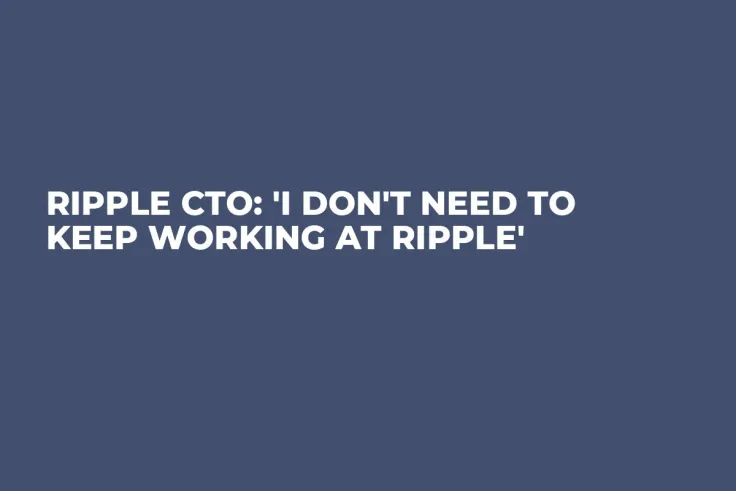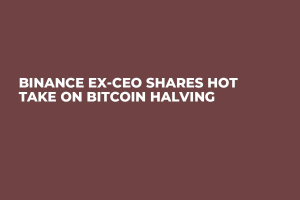
David Schwartz, the chief technology officer at Ripple, has taken to the X/Twitter social media platform to make a few important revelations about himself and his work at Ripple blockchain behemoth.
Here's what would make Schwartz quit Ripple
Schwartz, known on Twitter/X as @JoelKatz, issued a lengthy tweet to reveal how he came to be hired to be Ripple's chief tech officer. The Ripple cofounder, who was also the CEO in the past, Chris Larsen, approached him and invited him to join the team because of Schwartz’s loyalty.
In return, Schwartz said that he would remain loyal to him as long as he believed that Larsen would be the right chief to run the company. The CTO describes Larsen as “rational,” with an opinion that is hard to argue with. Schwartz made it clear that he was loyal to Ripple, which employed him, and not Chris Larsen in particular, even though he was the boss.
At the moment, Schwartz stated, he holds a lot of Ripple stock, and perhaps this is why he also revealed that he does not need to work for Ripple. Therefore, he will give up his high-ranking position there “as soon as it's not fun” anymore.
Schwartz not billionaire yet, regretting he chose Ripple stock over XRP
As for loyalty from other people, Schwartz admitted that he tells other people he does not need it if they do not think he deserves it. Even his harshest critics admit that, he pointed out, believing that many take jabs at him exactly for this without, perhaps, realizing it.
Still, even though the Ripple CTO holds a lot of the company’s shares, he recently tweeted that he is “not a billionaire yet.”
As reported by U.Today earlier, Schwartz owns 2% of Ripple stock. However, recently, he admitted that choosing stock over XRP was a “big mistake.” The three people who founded Ripple — Arthur Britto, Jed McCaleb and Chris Larsen — opted for XRP instead and received 20 billion XRP between the three of them.
In 2020, when the SEC sued Ripple, it also initiated legal action against Larsen and Garlinghouse for selling XRP directly to institutional investors as unregistered securities. A few years later, the SEC dropped the case against them but not against Ripple.

 Vladislav Sopov
Vladislav Sopov Dan Burgin
Dan Burgin